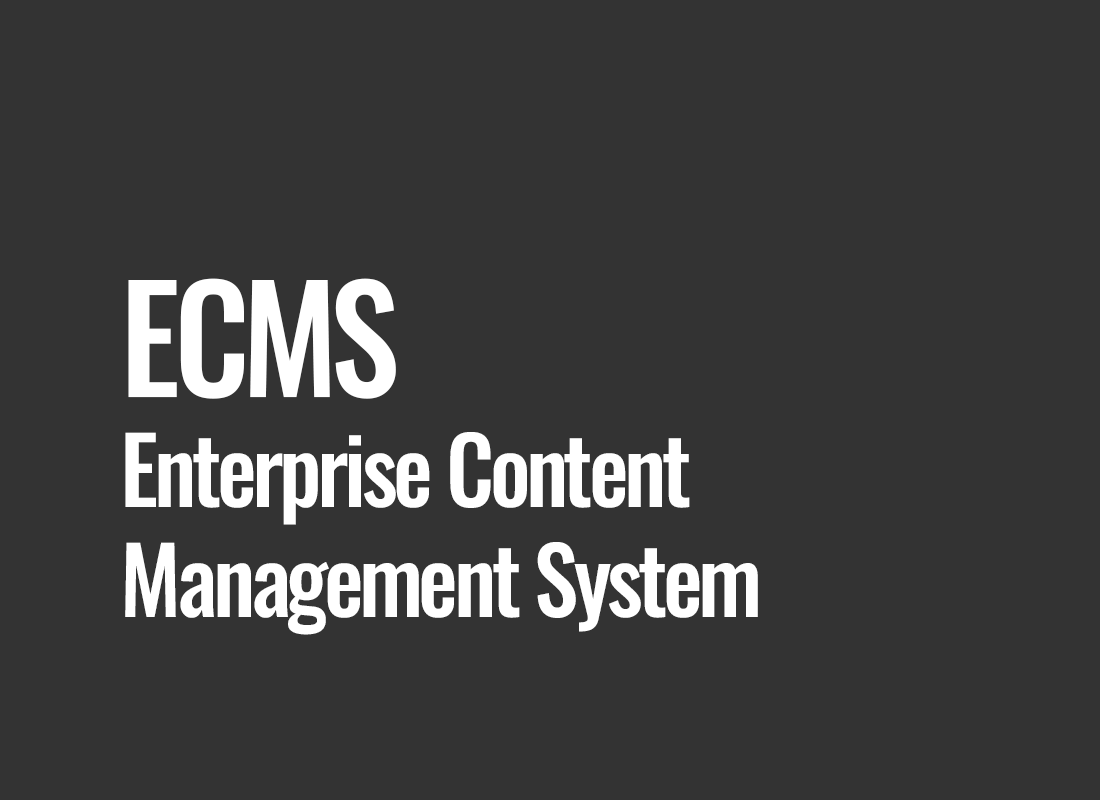ECMS (Enterprise Content Management System)
The Enterprise Content Management System, also known as ECMS, is an advanced technology that plays a crucial role in the field of content management in organizations. In the face of dynamic changes in the business world, increasing competition, and the ever-growing amount of data and information generated daily, effective content management has become a priority for companies in the UX, e-commerce, marketing, IT, and many other industries. ECMS is the answer to these challenges, allowing companies to effectively collect, organize, share, and manage various types of content.
Over the past few years, ECMS has become an essential tool in the development strategies of many organizations, which realize that effective content management translates into improved service quality, increased work efficiency, and profits.
Introduction to ECMS
The Enterprise Content Management System (ECMS) is an advanced technological tool that plays a crucial role in content management in enterprises. With the growing amount of information generated in the business world, effective collection, organization, sharing, and management of data and content have become essential. ECMS is the answer to these challenges, providing organizations with the ability to control and use information resources more consistently and effectively.
Key Features and Functions of ECMS
ECMS is characterized by a number of key features and functions that make it an extremely valuable tool in the business world:
- Content management.ECMS allows organizations to store, create, edit, and delete content in an organized manner, maintaining consistency of information and data throughout the company.
- Access control. ECMS systems allow for precise determination of who has access to specific content and data. This security is crucial, especially for confidential materials or personal data.
- Searching and indexing. ECMS automatically indexes content, facilitating quick searches for needed information. This significantly speeds up decision-making and task execution.
- Integrations. ECMS can be integrated with other systems in the company, such as CRM systems, ERP, or e-commerce platforms. This allows data to flow freely between different applications, eliminating the need for manual data transfer.
Role of ECMS in Content Management
ECMS is a key element of content management strategies in organizations. It allows for centralized collection and control of content, especially important in environments where the number of documents and information is vast. Implementing ECMS ensures order, consistency, and compliance with legal and administrative regulations.
Furthermore, ECMS facilitates data archiving, crucial for organizations that need to comply with documentation storage requirements for a specified period. This helps organizations avoid risks associated with the loss of vital information and documents.
Examples of ECMS Applications
Application of ECMS in e-commerce companies
E-commerce enterprises are a prime example of an industry where ECMS plays a pivotal role. Such companies often manage vast amounts of content, such as product descriptions, photos, customer reviews, or promotional materials. ECMS allows for effective management of this content, greatly enhancing the shopping experience. For instance, a clothing store can use ECMS to manage hundreds of products, automatically updating availability or prices on the website. This ensures customers always see current information, boosting trust and purchase inclination.
ECMS Implementation in Marketing
In marketing, where content is pivotal in conveying product or service values, ECMS is invaluable. Marketers often need to create, edit, and share diverse content, such as articles, videos, infographics, or promotional materials. ECMS eases these tasks by centralizing content, enabling collaborative work on a single project. This reduces content production time and enhances quality. For instance, a marketing agency might use ECMS to create and manage advertising campaigns for their clients, monitoring results, and adjusting strategies in real-time.
Business Benefits of ECMS
The application of ECMS brings numerous business benefits. Firstly, organizations can achieve greater operational efficiency by streamlining content management processes. This results in time and resource savings and increased employee productivity.
Secondly, ECMS aids organizations in maintaining consistent information and data across all operational levels. This is crucial to prevent errors and confusion that might lead to financial losses or customer attrition.
Thirdly, ECMS assists organizations in meeting legal and industry regulations. With strict data and content access management and automatic document archiving, companies can avert legal and financial complications resulting from non-compliance.
Conclusion
In today's dynamic business world, effective content management is a cornerstone of an organization's success. ECMS is an indispensable tool, allowing companies across various sectors to gather, organize, and utilize data and content more efficiently and cohesively. The benefits derived from ECMS are manifold, and its applications highlight its versatility and usefulness.
In the future, we can expect further development of ECMS technology, especially in the context of the increasing amount of data generated by enterprises. Companies adept at leveraging ECMS will gain a competitive edge and meet the increasingly demanding expectations of customers and legal-administrative regulations.
It's worth emphasizing that ECMS is not just a technological tool but also a strategic approach to information and content management in a company. Therefore, organizations not yet using ECMS should consider its implementation to enhance their efficiency and market competitiveness. Investing in ECMS is investing in the future, promising significant benefits for any organization.




